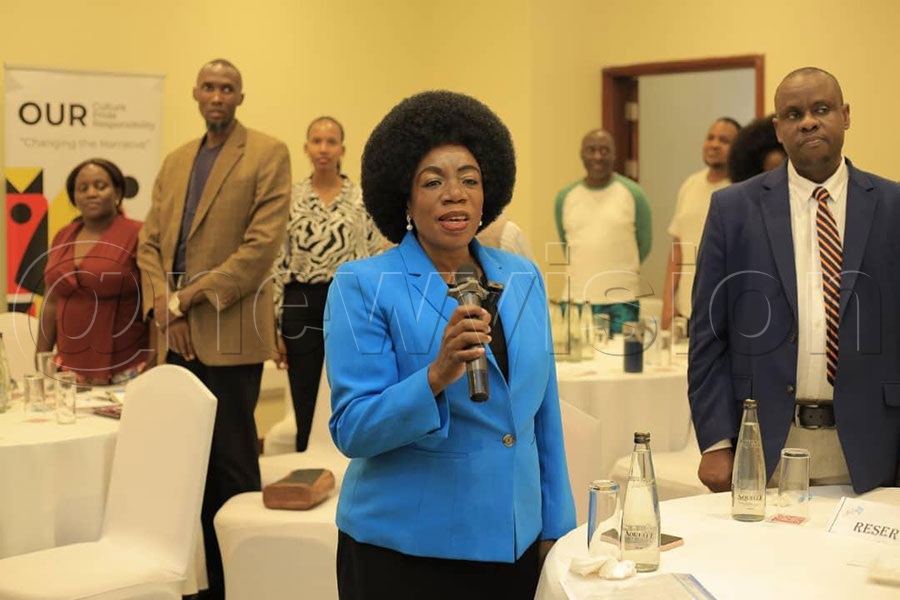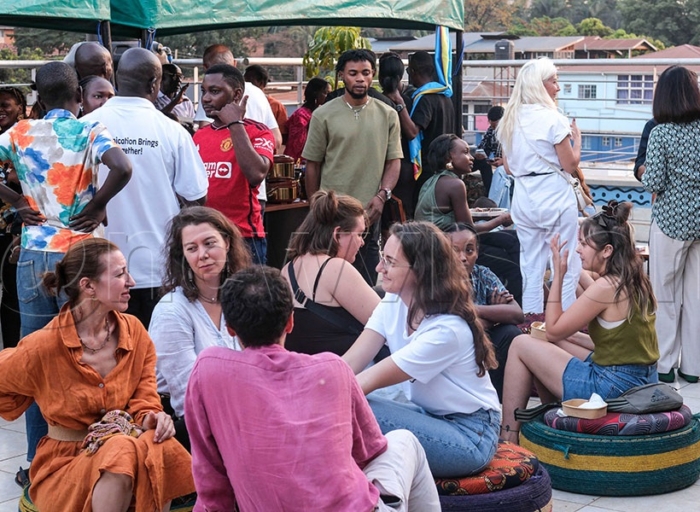Artists and creatives in Uganda have voiced their frustration over the challenges they face when applying for visas to travel for international performances, exhibitions, and collaborations.
Despite having formal invitations, signed contracts, or scheduled events, many report that embassies impose stringent restrictions, leading to frequent visa denials.
Rachel Magoola, the Woman MP for Bugweri District and Chairperson of the Parliamentary Forum for Creative Arts, has raised concerns about these barriers, which she says are hindering the mobility of artists and limiting opportunities for cultural exchange and professional growth.
“The creative people in Uganda have issues. Whenever they need to travel, the embassies give them such a hard time. In fact, most visas are denied,” Magoola stated during the launch of the National Cultural Policy report findings at the Hilton Hotel in Kampala last week.
She emphasized that even with legally binding agreements, artists face hurdles that prevent them from showcasing their talent globally. “If mobility for cultural practitioners was eased, we would see more Ugandans representing our culture abroad,” she added, calling for urgent reforms to support the creative industry.
In response, Jan Sadek, the European Union (EU) Ambassador to Uganda, defended the strict visa processes, citing past instances of Ugandans overstaying their visas. “The problem is that some Ugandans have stayed in Europe longer than permitted. This is why member states scrutinize applications heavily,” Sadek explained. However, he expressed hope that if more Ugandans adhered to visa regulations, European countries might ease restrictions. “We want a regulated and fair visa regime,” he said.
Magoola also highlighted structural challenges within the creative industry, particularly the fragmented management of cultural affairs. She noted that cultural policies are scattered across multiple ministries, making it difficult for artists to access support. “Culture is managed in six different ministries. Intellectual property is in the Ministry of Justice, cultural tourism in the Ministry of Tourism, tangible heritage in the Ministry of Gender, and intangible heritage in the Ministry of Tourism,” she explained.
This lack of coordination, she argued, hampers funding and development, leaving artists without a central institution to advocate for their needs. “The creative industries encompass over 20 domains, but without coordinated efforts in education, funding, and research, the sector has stagnated,” she added. Magoola recalled that when Uganda had a dedicated Ministry of Culture and Sports, there was more government involvement in promoting local artists and showcasing Uganda’s cultural wealth internationally.
Balaam Barugahara, the Minister of State for Youth and Children Affairs, urged artists to uphold professionalism and responsible behavior. “Artists should avoid excessive alcohol and drug use, harassment, and instead promote unity and exemplary conduct,” he said.
Barugahara also highlighted the struggles of prominent figures like Dr. Stephen Rwangyezi, founder of the Ndere Troupe, who is grappling with debt despite his contributions to Uganda’s cultural sector. “He has raised our flag high but is struggling to clear a loan for a facility that benefits us all. We must support him,” Barugahara emphasized.
He called for better policies and financial support to sustain the cultural industry and urged the Uganda National Cultural Centre (UNCC) to improve its relationship with artists by sharing opportunities and linking them to funding programs like the Parish Development Model (PDM) and the Youth Livelihood Programme (YLP). “UNCC must be transparent and accountable for all resources it receives,” he added.
Barugahara expressed optimism about the future, stating, “I believe my ministry will submit a revised Uganda National Cultural Policy to Cabinet for approval by the end of March. I’m hopeful that the principles of the culture and creative law will be ready by December.”



